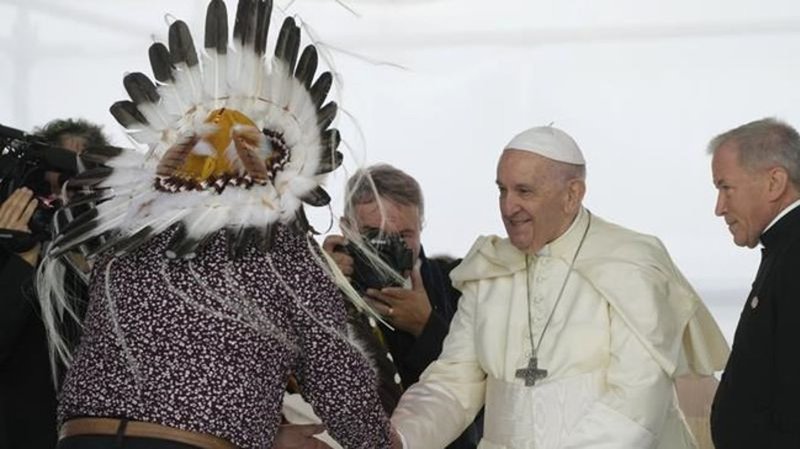
Were mixed signals a worry for Ottawa ahead of Pope’s visit: In The News for Nov. 8
In The News is a roundup of stories from The Canadian Press designed to kickstart your day. Here is what’s on the radar of our editors for the morning of Nov. 8 …
What we are watching in Canada …
Before Pope Francis’s arrival in Canada last July, federal officials flagged concerns about the level of consultation done with a First Nations community that was set to host him.
Briefing notes prepared for the deputy minister of the Department of Crown-Indigenous Relations a month before the Pope arrived also show officials were concerned about how much help Catholic bishops would be in translating the Pontiff’s Spanish into Indigenous languages.


